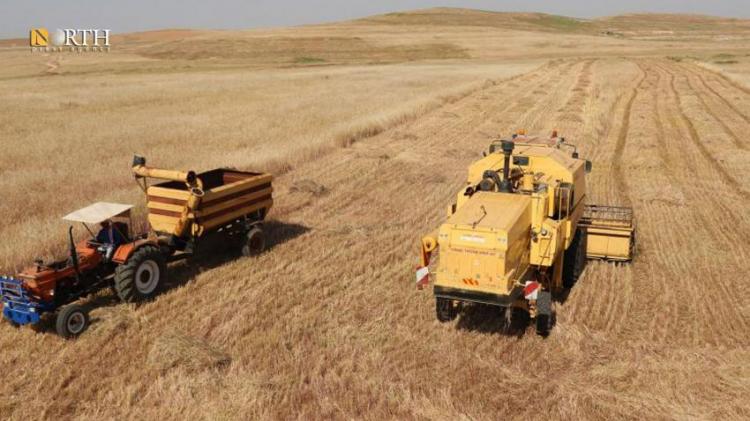Syrian government expects productivity of wheat to decline
DAMASCUS, Syria (North Press) – The Ministry of Agriculture and Agrarian Reform of the Syria government expected that the rainfed wheat quantities would be less than planned, due to the drought wave that the region is witnessing.
Director of Plant Production at the Ministry of Agriculture, Ahmad Hayder, said earlier that 95% of the wheat plan had been implemented.
The Ministry asked the farmers to use the supplemental irrigation in rainfed areas, as it increases production capacity from 3 to 10 times over the natural crops.
Many farmers from al-Ghab Plain said that the shortage and cost of fuel is the obstacle to the use of the irrigation to reduce losses.
Farmers complain that buying a liter of fuel from the black market costs between 2,000 and 2,500 Syrian pounds (SYP), so adopting irrigation is not economically feasible, because each dunum of rainfed wheat needs about 10 liters per irrigation, according to the farmers.
The ministry stated that climate changes, accompanied by high temperatures and lack of rain, especially during the current month of April, have caused great damage to many agricultural crops, especially wheat.
The farmers indicated that the government should have supplied them with fuel, as long as the slogan of the ministry for this year is “the year of wheat.”
The Ministry of Agriculture set up a plan to cultivate 1.8 million hectares, but only 972.4 thousand hectares were actually cultivated.
It is worth mentioning that Syria has turned from being a source of wheat to an importer, and the country is suffering from the inability to secure bakery allocations of flour, which has caused large queues and crowding on the bakeries.

